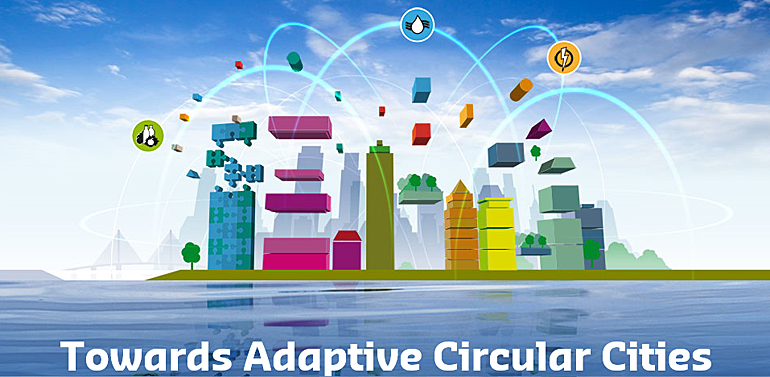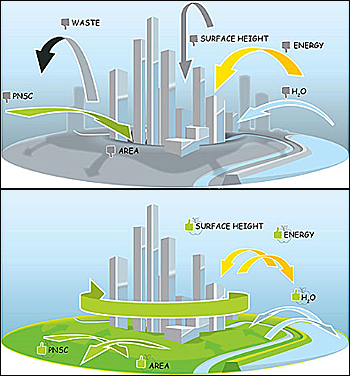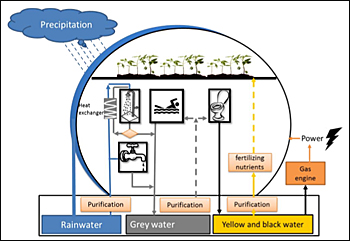Towards adaptive circular cities with cross sectorial investments combining several goals
 How can cities simultaneously contribute to climate change mitigation, climate change adaptation and resource efficiency?
How can cities simultaneously contribute to climate change mitigation, climate change adaptation and resource efficiency?
Four leading Dutch institutes for applied research, Deltares, TNO, Wageningen UR and ECN, combined forces and took up this challenge in the 2015 project Adaptive Circular Cities.
The institutes searched for solutions with significant added value to address several urban issues at the same time, such as climate mitigation, climate adaptation and the transition to a circular economy.
The results are now available on a website.
 Cities are growing so big that their surroundings cannot handle the environmental impacts anymore. Cities have to become more self-sufficient.
Cities are growing so big that their surroundings cannot handle the environmental impacts anymore. Cities have to become more self-sufficient.
Three major related subjects
The researchers used new combinations of state of the art expertise, tools and models, to identify combinations that simultaneously contribute to climate change mitigation, climate change adaptation and resource efficiency.
Using real world cases, three major and closely related subjects were analyzed in an integral manner:
● water, food and energy
● safe and healthy urban living
● construction and the subsurface
Valuing the water chain
One of the solutions considered for a transition to a circular economy was the option of decentralized water treatment. What is the best circular solution: centralized or decentralized water treatment?
The researcher concluded that, under the right conditions, decentralized water treatment may deliver benefits in the field of sustainability, ecology and costs.
However, it appears that these benefits can only be achieved when applied on a large scale. This is shown by the comparison of five scenarios with the TNO Water chain model for the Buiksloterham pilot area in Amsterdam North.
 A decentralized water treatment scheme is the Autarky concept, using rain water, and producing electricity and food.
A decentralized water treatment scheme is the Autarky concept, using rain water, and producing electricity and food.
Scale matters
This study showed that with current technology decentralized water treatment is only a low cost alternative if applied on the scale of entire neighbourhood or district, instead of a single home.
The use of energy is almost equal in all scenarios. The advantage of the decentralized treatment is mainly caused by the reduction of water intake and water discharge. This advantage appears particularly at the scale of the entire district.
Gradually implemented decentralized water treatment on the scale of a district or an entire city will also lower the investments in the water infrastructure, since it requires a significantly smaller network.
Results on website
The recently launched website shows the results of the project on a thematic basis, including solutions for circular governance, waste to resource, energy, water retention, infrastructure, circular building and other themes.
This news item was originally published on the website of Wageningen University and Deltares.
More information
Deltares
Delft, the Netherlands
+31 88 335 8273
www.deltares.nl
Wageningen University
Alterra, division Nature and society
Wageningen, the Netherlands
+31 317 483 968
www.wageningenur.nl/alterra
and
www.adaptivecircularcities.com



